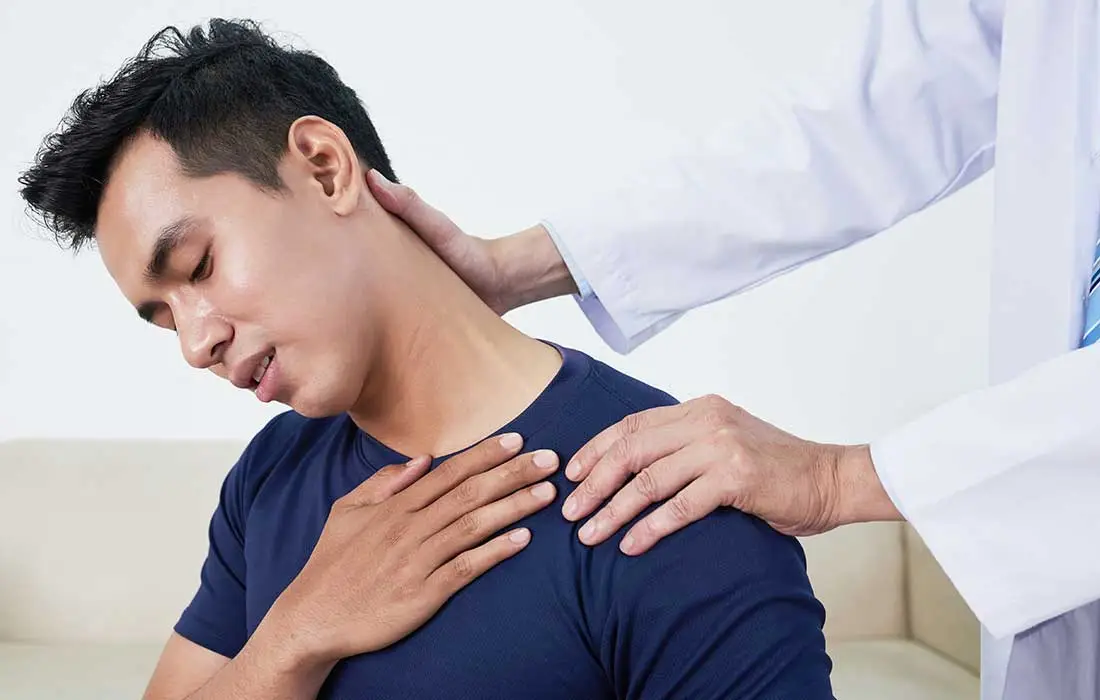- Call 663 215 6973
- contacto@rilassareclinic.com
- Mon - Fri 12.00 - 18.00

No, alternative medicine is a supplement to treatments the patient may be undergoing and is not contraindicated in any case due to its safety and lack of adverse reactions or side effects. Alternative medicine helps strengthen your immune system and regulates your body’s acidity for optimal functioning.
Anyone can suffer from neck pain. In fact, most people experience it from time to time, usually due to poor posture or muscle strain. However, sometimes neck pain is caused by an injury, such as whiplash, a fall, or a blow in contact sports. If this is your case, you may need medical attention.
Neck pain is a nuisance. Whether it’s from sleeping in a weird position, a previous injury, or a sudden movement—something we all hate when it happens—that cracking sensation in your neck can ruin your day, at best.
Now you can discover why it happens and what you can do to relieve neck pain, so that movement brings a smile to your face instead of a grimace.
Neck pain symptoms range from mild discomfort to severe pain. Most neck pain symptoms are not a cause for concern. However, some symptoms may indicate a more serious issue that requires medical attention. We’ll help you figure out when neck pain is concerning and when it’s not.
Signs and symptoms of neck pain may include:
If neck pain occurs after an injury, fall, or accident, seek medical attention immediately. It could be a sign of damage that needs medical treatment.
Neck pain can seem more frightening than it really is. Most neck pain goes away on its own with home remedies. However, if you experience any of the following symptoms, it’s best to consult a doctor:
Basically, the upper part of the spine and the spinal cord—our neck—is made up of seven vertebrae that form what’s known as the cervical spine. That’s why we sometimes refer to neck pain as cervical pain. Between these vertebrae are cartilage discs that provide cushioning.
There are also nerves running through the neck, as well as muscles, tendons, and ligaments that allow us to turn the neck or move and support the head. Neck pain can result from strain or injury to any of these structures. Depending on the cause, neck pain can be acute or chronic—meaning it can be short-lived and resolve quickly or become long-term and recurring.
Some causes of acute neck pain include:
Chronic neck pain may be caused by various conditions.
Sometimes emotional stress can also cause neck pain. Anxiety, stress, and even depression can make the neck muscles tense up excessively, triggering that uncomfortable neck pain.
Your doctor will ask you about your symptoms and perform a physical exam. They may also ask about injuries, illnesses, or activities that might be causing your neck pain.
During the physical exam, your doctor will check how well you can move your neck. They’ll also look for tenderness or numbness, tingling, or weakness in your arms or hands.
If your pain started after an injury or hasn’t improved after a few weeks, your doctor may order additional tests. Diagnostic imaging, such as X-rays, MRI (Magnetic Resonance Imaging), or CT (Computed Tomography) scans can show the muscles and tissues in the neck. These tests may be done to check the neck bones, spinal discs, spinal nerve roots, and the spinal cord.
The type of treatment you need will depend on whether your neck pain is caused by activities, an injury, or another medical condition. Most neck pain caused by activities can be treated at home.
For sudden-onset neck pain:
Ask your doctor if you can take acetaminophen (like Tylenol). Ibuprofen or other anti-inflammatories may also help relieve pain.
To treat chronic neck pain, your doctor may prescribe medications to relax the neck muscles. They may also give you medications for pain relief and to help you sleep. You could also try massage or yoga to relieve neck tension.
Surgery for neck pain is rare. But it may be done if your pain is caused by a medical condition, such as pressure on spinal nerve roots, a tumor, or spinal canal narrowing.
If you have chronic daily headaches, you’re more likely to have depression, anxiety, sleep disorders, and other physical and psychological issues.
You can prevent neck pain caused by stress or muscle tension with a few new habits. Avoid staying in positions that strain your neck for long periods. This includes sitting at a computer for too long.
If your neck pain worsens at the end of the day, consider how you sit throughout the day. Sit upright in your chair with your feet flat on the floor. Take short breaks several times each hour.
If your neck pain is worse in the morning, check your pillow and sleeping position. Use a pillow that keeps your neck straight. Avoid sleeping on your stomach with your neck twisted or bent.
If you want to have an online consultation with one of our doctors, click the following button to visit our website www.virtualmedical.com.mx
Visit Site